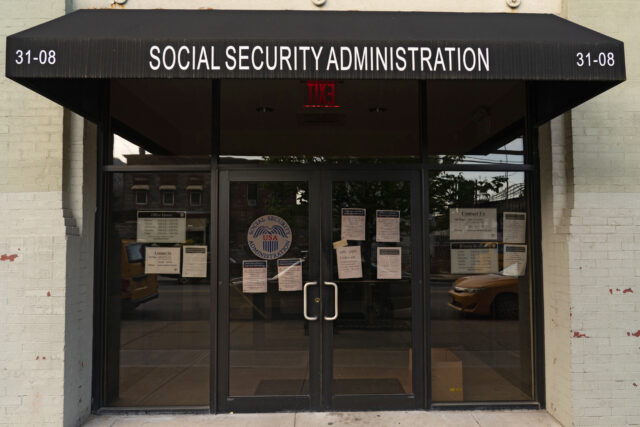
COVID’s Undue Financial Toll on Older Blacks, Hispanics
Anyone who was paying attention to COVID’s devastation, whether in terms of being exposed to the virus at work or deaths, could not miss the racial aspect of it.
A new study of Americans over 50 confirms that Black and Hispanic workers, whose jobs often placed them on the front lines in the service industry, were much more likely to miss at least two weeks of work due to illness than their White counterparts.
And this vulnerability had serious financial consequences, which were often compounded by a lack of employer benefits like paid time off or sick days if they contracted the virus. The federal relief package initially passed by Congress required employers to provide paid sick time but that ended in December 2020.
By June 2022, when the worst of COVID had passed, Black workers were three to four times more likely than similar Whites to have experienced a range of financial problems, from missing a housing or credit card payment to not having enough money to buy food or pay their medical bills, the researchers found.
The financial impact on older Hispanic workers was more mixed but still worse than for Whites during COVID. The findings are significant, the researchers said, because they reveal that the pandemic heightened the “cumulative inequities” that had already existed before the virus hit.
And COVID had more fallout for minorities, the researchers said, despite Congress’ approval of generous levels of financial assistance to help all Americans get through the pandemic – levels that should’ve been more important to Black and Hispanic recipients, because they tend to earn less.
The racial and ethnic aspect of COVID’s impact was dramatized in this study by considering how workers were doing a few years before the pandemic.
Older Black workers over 50 who had been in relatively good financial shape before COVID found themselves in worse condition than the White workers who had also entered the pandemic in a good position. In fact, these older Black workers were in no better shape a year into the pandemic than the White workers who did have financial problems prior to COVID.
The researchers concluded from their findings that White older workers “were uniquely protected” from COVID’s financial consequences.
Blacks and Hispanics, on the other hand, “experience[d] relatively high rates of post-COVID-19 [financial] precarity even in the absence of pre-COVID 19 precarity,” they said.
To read this study by Dawn Carr, Rebekah Carpenter, Qiuchang (Katy) Cao, Qize Chen, and Amanda Sonnega, see “Racial and Ethnic Disparities in the Effects of COVID-19 on Employment Disruption and Financial Precarity.”
The research reported herein was derived in whole or in part from research activities performed pursuant to a grant from the U.S. Social Security Administration (SSA) funded as part of the Retirement and Disability Research Consortium. The opinions and conclusions expressed are solely those of the authors and do not represent the opinions or policy of SSA, any agency of the federal government, or Boston College. Neither the United States Government nor any agency thereof, nor any of their employees, make any warranty, express or implied, or assumes any legal liability or responsibility for the accuracy, completeness, or usefulness of the contents of this report. Reference herein to any specific commercial product, process or service by trade name, trademark, manufacturer, or otherwise does not necessarily constitute or imply endorsement, recommendation or favoring by the United States Government or any agency thereof.
Comments are closed.







I wish the policies that harm them and these statistics were noticed by the people most impacted by them. Maybe they would quit voting for the folks that do them the most harm.